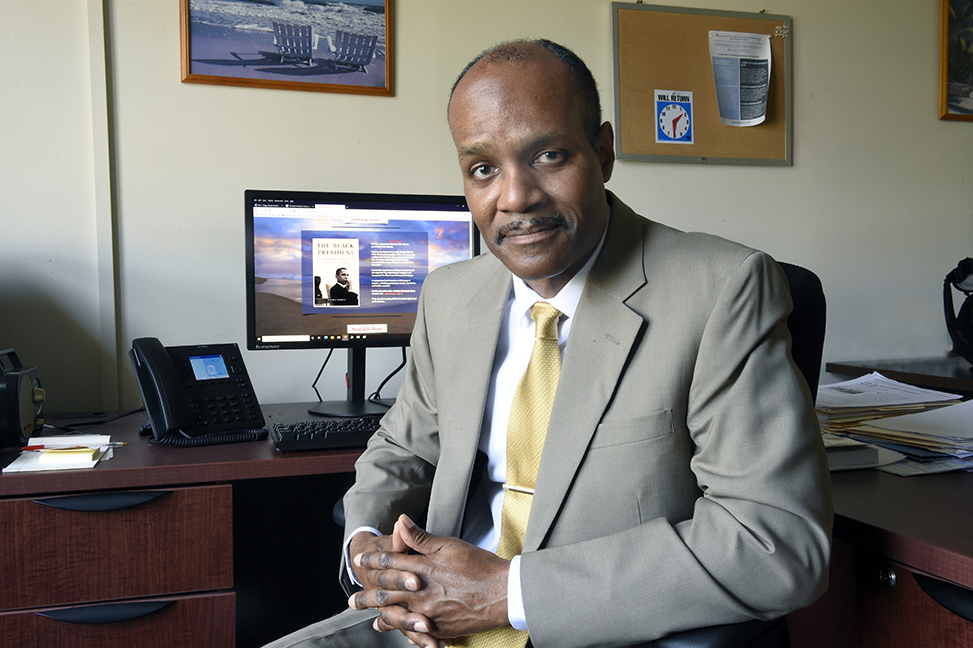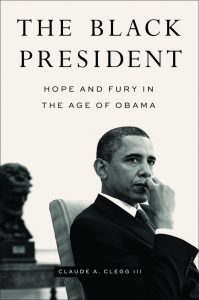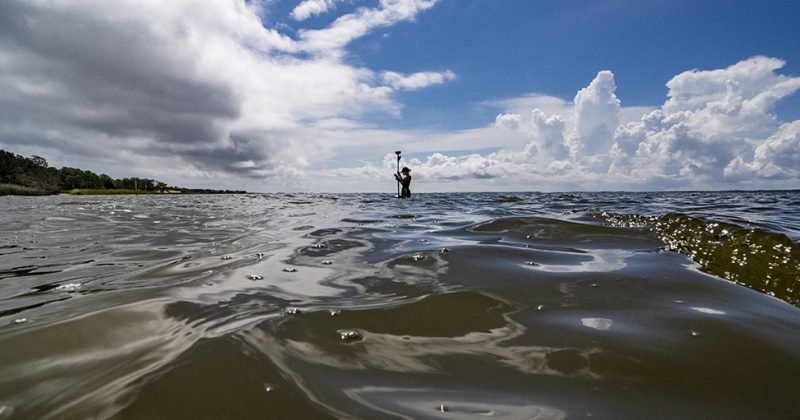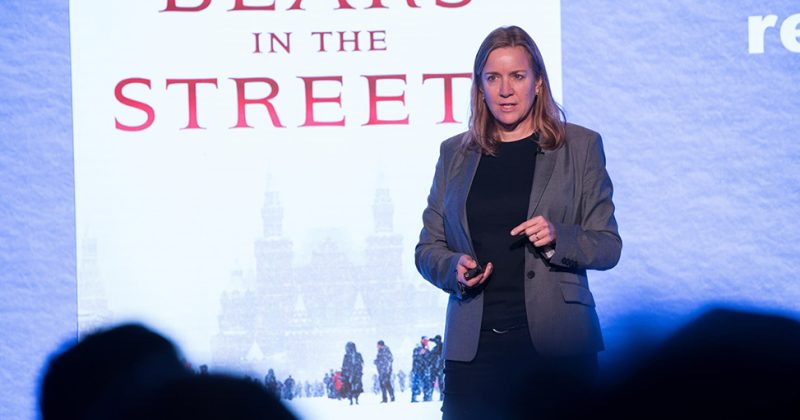
Historian Claude Clegg said writing "The Black President" took him out of his comfort zone because he was chronicling events in real time, without benefit of historical perspective. (by Donn Young)
On Election Night 2008, Claude Clegg, eyes glued to cable news, was chatting with a relative on the phone in the moments before Democratic nominee Barack Obama was announced the winner of the presidential election. Both were marveling at the prospect of the first Black man to hold the nation’s highest office, and Clegg knew then that he wanted to write a book about the Obama presidency, whatever it may hold.
The result is The Black President: Hope and Fury in the Age of Obama (Johns Hopkins University Press, 2021). It is a breathtakingly comprehensive account, beginning with Obama’s early years and his journey to the national stage, covering his eight years in office and then the post-Obama era — ending with the January 2021 insurrection that followed his successor’s refusal to concede in the 2020 presidential election.
When you’re a historian by training, how do you write about events happening in real time?
“Historians are used to looking in the rearview mirror — we’re interpreters of what happened,” said Clegg, the Lyle V. Jones Distinguished Professor and chair of the department of African, African American and diaspora studies, who holds a joint appointment in the department of history. Watching Obama’s terms in office unfold “put me in a situation where I had to collect everything, essentially build my own archive, since I didn’t know what the eventual historical takeaway would be —news sites and speeches and YouTube videos and memoirs, and interviewing people serving in the administration. I had to collect it all with the hope that I’m not going to overlook something.”
 One of the book’s overarching themes focuses on how the diversity of black America has led to complex and fractured views of the Obama presidency. For example, there are many Blacks who thought Obama should have done more for them since it was their overwhelming support that got him elected. Clegg acknowledges the dilemma Obama faced — he needed to retain support from whites, the majority of whom did not vote for him, and thus he didn’t want to appear to play favorites. His approach was to advance initiatives, such as the Affordable Care Act and support for Pell Grants, in which everyone benefited, but lower-income individuals would benefit most, said Clegg.
One of the book’s overarching themes focuses on how the diversity of black America has led to complex and fractured views of the Obama presidency. For example, there are many Blacks who thought Obama should have done more for them since it was their overwhelming support that got him elected. Clegg acknowledges the dilemma Obama faced — he needed to retain support from whites, the majority of whom did not vote for him, and thus he didn’t want to appear to play favorites. His approach was to advance initiatives, such as the Affordable Care Act and support for Pell Grants, in which everyone benefited, but lower-income individuals would benefit most, said Clegg.
“In contrast, President Biden, a white male, is able to more fully embrace his Black constituency,” said Clegg. “Shortly after he took office he said, ‘I’m going to support the Black community because they have my back.’ I couldn’t imagine Barack Obama saying that.”
It was important that his book cover not just Obama’s years in office but the period that followed, Clegg explained, because “you can’t fully contextualize the Obama presidency outside of the forces and the interests and opposition that made a Donald Trump presidency possible.”
On the flip side, he believes that Kamala Harris, as a woman of color, is vice president also because of Obama: “He opened doors for people who don’t look like the 43 prior residents of the White House.”
Last spring, Clegg taught a course on the U.S. presidency. He said that during the week spent covering Obama, he was struck by “students asking the same kinds of questions, making the same kind of comments about Obama that they were about, say, Franklin Roosevelt.”
Students in his classes today were too young to have voted for Obama, but “when they were growing up, it doesn’t matter who their parents voted for, when they first knew who the president was, during their formative years, it was a Black guy in the White House for eight years. … I don’t think we can fully process how significant that is.”
Read more books by College faculty and alumni.
By Geneva Collins
Published in the Fall 2021 issue | Chapter & Verse
Read More

A merger of land and sea
Union of geological and marine sciences disciplines erases artificial boundaries….

‘Undergraduate research changed my life’
Troy Blackburn (B.A. exercise and sport science ’98, Ph.D. human…


